#the list i wrote is just a very small selection of remarkable stuff that happened since the first edition in 1951
Explore tagged Tumblr posts
Text
I think the non-italians crowd doesn't actually understand Sanremo. Sanremo is not just a tv show, it's an experience.
On paper, Festival di Sanremo is a song contest where a bunch of singers compete for roughly a week with a song, and get judged by journalists, a professional jury and the popular vote by televoting. It is not a contest to choose who goes to the Eurovision. It's a complete different contest where the winner can choose to represent Italy in Eurovision.
Usually it's aired in early february, and the first day is on tuesday right after the 8pm news up until after midnight, while the final is on saturday. Some years you also get an aftershow, where they comment on the night that we just saw. The name of the participants are announced in december. The songs are all unpublished and super secret, you can only listen to them for the first time on the stage. If your song gets leaked, you get disqualified from the competition.
Of course, dresses and general vibes on stage are important too, not for the contest per se, but for the audience who watches and judges how they dress or act. This goes for the singers, the hosts and every guests. Then there's interviews and gossip and everything that surrounds an event like this. The stage itself with its scenography is important too, the main focus point is the staircase and how everyone walks down from it. It's always held in Teatro Ariston, a theatre in Sanremo (Liguria) and broadcast live by RAI, the public state tv and radio.
This is Sanremo on paper. In reality is a lot more than that.
Because it's a live show, broadcast worldwide, and it starts at 20:45 and ends at 1:30 (when it's not longer) everything can happen. And it will.
Every once in a while there's someone who jumps on the stage to shout stuff, to protest against the festival or the government. Depending on who's participating, sometimes politicians make statements in the parliament against the singers. There's always a piece of underwear showing somewhere, a skirt too high or a shirt cut too low. Maybe a host is not even wearing underwear and shows everything to the camera, like Belen Rodriguez's butterfly tattoo.
In 1961 Adriano Celentano sang while giving the back to the audience in protest. In 1967 Luigi Tenco, a singer who was competing, killed himself in an hotel room after the final. In the early 80's all the singers were lip singing to their songs, and Vasco Rossi decided to put his mic in a pocket and walk away before the song was finished as a protest. In 1986 Loredana Bertè sang while wearing a tight leather dress over a fake pregnant belly. In 1995 someone in the audience tried to jump down the balcony into the crowd and the host (Pippo Baudo) had to stop him. We later found out this was staged. In 2001 Placebo were an international guest, and destroyed their guitars on stage after the audience booed them. Many singers brought controversial songs, such as Povia who in 2009 brought "Luca era gay" ("Luca was gay") about this guy who suddenly becomes straight. Many singers also bought their places or the televote, like the trio Pupo, Luca Canonici and Emanuele Filiberto (from the Savoia family, you know, the used-to-be-kings-of-Italy) who allegedly bought many call centres in order to vote for their song in 2010. The did not win. This is also why now the maximum number of valid votes is five, and after that you can't vote anymore. In the same year, 2010, the entire orchestra destroyed their music sheets in a protest against the elimination of Malika Ayane's song from the top three. In 2019 a racist politician complained about Mahmood singing (and winning) because "he's not truly italian". The same year, Ultimo ended up in second place and had a huge meltdown during the press conference and later on his instagram. In 2020 two singers (Bugo and Morgan) who were participating together fought backstage and Morgan changed the lyrics of the song into something insulting the other one, who walked off the stage. In 2023, this year, Blanco was singing as a guest and couldn't hear his voice in the earpiece and decided to break the flower composition on the stage. They are currently discussing if he should get prosecuted and put in jail for this, I wish I was joking. Also in the same year Rosa Chemical, while competing, decided to kiss the host's husband (Fedez) in a staged performance at the end of his song, and everyone is talking about harassment and the pro life organization wants to report them for indecency. And now apparently the government wants Rai to fire Amadeus (the host for the past four years) because it's "too chaotic and controversial", even though every year the share is astronomical. We're talking like more than 62% of share at 2am. And because they made an official instagram account for the host on stage as a skit, there's a petition to investigate if this was all a gigantic spot for instagram.
There are countless of weird songs and weird performance and weird dresses, countless of singers walking barefoot on stage or falling down the stairs, even more countless of controversies and meme. The songs fly up to the charts and some stays there for months. The most italian famous song is "Nel blu dipinto di blu" by Domenico Modugno who won Sanremo in 1958. And then there are the haters. There are also contro-festival (against festival) happening, where the alternative scene has concerts and other song contests. Literally countless of drama.
Sanremo is more than just a song contest, more than just a week. Festival di Sanremo is a collective experience that lasts for months, becomes dormant during summer (when you are still listening to the songs or artist that came out of it anyway) and makes a comeback in december and then february. It never truly ends.
#sanremo#sid talks#i'm sorry i will shut up about it at some point#but you have to understand how much stuff happens during this week and how it shapes the rest of the time#the list i wrote is just a very small selection of remarkable stuff that happened since the first edition in 1951#it's been 73 years so... there's A LOT#oh yeah i forgot that there was also a bomb threat near the theatre this year...
30 notes
·
View notes
Text
Some thoughts on my last Gamefly rental, Our World is Ended.

One way you pick choices is interesting. Sometimes it’s like a normal visual novel, but the game also has another way to do it, called ‘Selection of Soul’(SOS), that has the choices go across the screen like NicoNico comments do on videos. For the latter, the game will continue whether you pick any or not, and both kinds increase or decrease character affection with Reiji and the others. Also, not picking a choice for every SOS is required for the trophy that needs you to pick all choices in the game.
Some moments have them do clever things with the character portraits, like when attacking Velovelos, their’s are placed around or behind it to seem like they’re attacking from all sides. It’s not done too often, though.
At times, mainly the early chapters, I felt like I was forcing myself through it because of how annoyed the characters were making me, with the large amount of dumb sexual jokes making it a chore. When things actually starts happening and the dumb ecchi-comedy stuff takes a backseat, it gets better. Especially after a certain, rather intense, event. Chapter 13 brings it back to the forefront, annoyingly, but only for that one.
The story is fairly long, and more like a kinetic novel, and each character has their own ending, including someone not listed here(though their’s is more of a bad ending), but you can’t get them or the True Ending on your first run, since the Normal Ending stops you, making you start from the beginning again(though you can just skip read text at that point to go through faster). Here’s a guide for getting each of their endings.
The game’s artstyle is very good and nice to look at, and each character looks distinctive from each other. I’m not sure exactly what it is, but it looks like theres...particles(?) around the character portraits, making anyone who wears black look like they have some kind of spacial effect on their clothes(it’s most noticeable on Deguchi).
Thoughts on the characters:
Reiji, the MC, is tolerable, but still has dumb, pervy thoughts often that hurt the mood, and ends up saying really stupid things, even unprompted. His mouth sometimes starts moving before his brain. He gets better and comes into his own as the game goes on.
Owari is an unashamed perv, though does have times when he acts responsible and respectable...and usually ruins that a few lines later. His ending may rub some people the wrong way.
Iruka can be a loud, annoying chunni, which made me usually skip his dialogue when he makes strange yells, but he means well, and is pretty likable.
Natsumi is just fairly hostile to everyone early on, but does gradually get nicer. Might be a tsundere. Became my favorite after a lot of nice moments with her and...well, read below.
Tatiana can be annoying, but she’s a kid, so it’s mostly tolerable, although she acts younger than a 13 year old. The game likes making annoying lolicon jokes with her, though they’re usually spread out. Her ending, on the other hand, goes all in on them, and is just awful to sit through. It would have been nice if they went for a brother/sister thing with more of their events together, and it would have fit pretty well with her character, but it feels like they had to shoehorn those kinds of jokes in, which ruins some possible good moments like that, but at least there’s a few that aren’t(also, all the male members of J7 are confirmed to not be into that...I think. Knowing Owari, he could just be screwing around).
Yuno is the most immediately likable of J7 and can be an airhead, but there’s more to her than just that that we see later on.
Asano is the butt of a lot of jokes in the game because, unlike her airhead sister and Natsumi, she’s flat, and the game won’t let you forget it. Also, she has a similar hairstyle to Yuno, but with the artstyle and the way it’s drawn, I thought she had a small ponytail until one CG showed that she didn’t.
There’s a bunch of small typos scattered around the game, but they aren’t too distracting.
Early on, the game was very obnoxious with the pervy jokes and constant sexual remarks about the girls, which made going through the dialogue a chore, but once the story actually kicks in, that happens less(though doesn’t go away), and I started to really care about what was happening. If you think you can deal with that for a while to get to the good parts, it might be worth a try. ...I will also admit that, in retrospect, I may have been tired when starting the game, making me get annoyed at it easier. ^^;
I’ve been hinting at it, but before renting this, I had heard about it having a lot of dumb pervy humor, among other things, but where I had heard it from has a history of being...dubious(my phone has that “article recommendation” thing, and it gave me that one). I decided to rent it to see for myself, plus I was already a bit interested, anyway. And it was somewhat accurate, more or less(though I didn’t agree with everything they said, especially some parts that felt like it was intentionally trying to get a reaction from some people). I almost wrote it off and sent it back after seeing those annoying parts in the early chapters, but I’m glad I forced myself through them, since the rest of it was pretty good(aside from most of Chapter 13 and something with Asano, mentioned below). Wish it didn’t feel like a slog getting there, though.
...you’ve probably put 2 and 2 together that I think ecchi humor is annoying and dumb, hurts the mood, ruins potentially good moments, and is not for me by now. I know, I’ve been incredibly subtle about it. =P
Before sending it back, I listened to the very nice sounding True Ending song, Eternal Days(Working Title) a few times. With the lyrics and context, the song is sad, too. Can’t find a transcript of the lyrics online in English, though.
Next game being sent is: 7′scarlet.
Some spoilers below when I talk about one of the characters, and something about them I really didn’t think worked. Might want to skip if you plan on playing it to form your own opinion on it:
Asano was one of the characters I liked the most for a while...until it gets revealed that she’s a shotacon, and that’s not hyperbole. The game tries to explain and downplay it after a section where she opens up a lot, saying it’s from not feeling safe around adult men because of a creeper relative and former boss, and her line of “it’s less that I like little boys, and more that I’m just not good with adult men”, but yeah...no. Her reactions with Nichol, the character that brings this out in her, are not portrayed that way, from how I saw it. There’s probably a way they could have written her similarly while dropping the shotacon thing, but nope, that’s what we got, greatly hurting her likability for me, though the game does somewhat salvage her for me by the end. It all feels like they just shoehorned in the shotacon parts as a joke(like the lolicon ones weren’t bad enough).
#Our World is Ended#Our World is Ended.#Thoughts on my rentals.#I have a feeling I'll catch some heat for part(s) of this. ^^;#This went through a LOT of rewrites since I started the game.
3 notes
·
View notes
Text
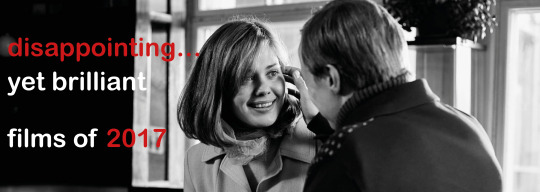
This is a list of my favourite films of the year. That sounds like a simple statement, but in some quarters the long-running arguments about what is and isn’t a film got very heated in 2017. Even the year bit of that can get very messy.
But for at least this one last time, I’m keeping things simple: these are the films I enjoyed most out of the ones that were released in UK cinemas in 2017.*
There were plenty of films I didn’t see: some I wanted to but didn’t get round to – Colossal is the one that stands out. Others I just wasn’t drawn to – Detroit, Dunkirk (give money to Christopher Nolan and he’ll only keep making movies) and the critically adored Call Me By Your Name (the super-annoying title probably didn’t help).
There were lots of movies I did see and like, though, and that’s what we’re here to talk about…
*This decision was made simpler because I didn’t love any of the films that Netflix streamed without even giving a token cinema release, which included Noah Baumbach’s The Meyerowitz Stories (New And Selected) and Sundance favourite I Don’t Feel At Home In This World Anymore. The best of the bunch was The Incredible Jessica James.
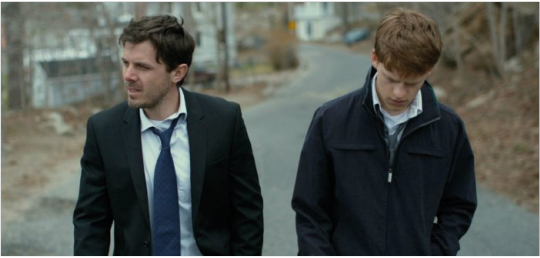
1. Manchester By The Sea
Back in October 2016, I wrote: ‘If a better film is released in the UK in 2017, I’ll be very impressed.’ Well, I have been impressed by the excellent movies below on this list, but none of them beat Manchester By The Sea as far as I’m concerned. In outline, it sounds like nothing special: a story of some grim stuff happening to a fairly ordinary family, in particular a bloke who likes to pick fights in bars and his teenage nephew. But writer-director Kenneth Lonergan turns the ingredients for a predictable drama into something very special, not least by lacing this grief-laden story with lots of (appropriately) funny moments.
Full review here

2. The Handmaiden
A lot of the films on this list are fairly light on plot, so if you want a movie with scheming, counter-scheming and deception, not to mention pretty costumes, sex, cherry blossoms, perviness (its 18 certificate is richly earned) plus differing Korean views of their Japanese occupiers, this is the one. It’s directed by Park Chan-wook, best known for Old Boy, and loosely based on Sarah Waters’ Victorian-set melodrama Fingersmith, which turns out to be perfectly suited to Korea in the 1930s.
Full review here
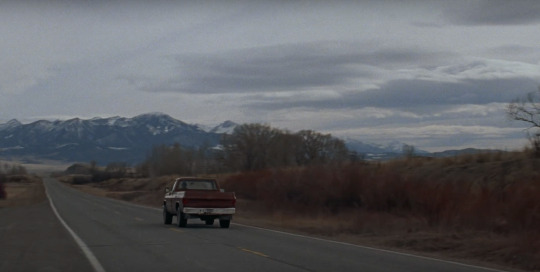
3. Certain Women
Resolutely low-key collection of three slightly overlapping short stories set in wintery Montana. It’s a character piece, with Laura Dern, Michelle Williams and (the excellent, previously little-known) Lily Gladstone leading each segment. Director Kelly Reichardt knows exactly who these women are, and how the place they live shapes them. It seems modest at first, but it stuck in my mind long after flashier films had faded away.
Full review here
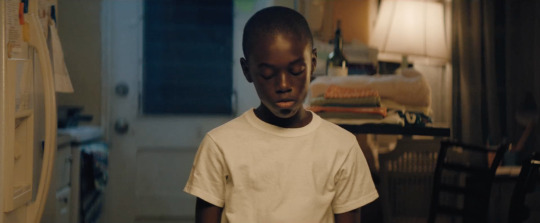
4. Moonlight
So much of what I read about Moonlight made it sound so much less interesting than it is. Around awards time, you could have easily formed the impression it was a heart-tugging issue movie, not helped by the campaign to get Naomi Harris an Oscar (‘Look! Pretty woman getting grubby to play junkie skank!’)**
What makes it a remarkable film – and it is a remarkable film – are the extraordinary cinematography and the telling of the story via often fragmentary scenes, and how little is explained, at least until the much more conventional, even theatrical (and thus slightly disappointing) final segment. Great moviemaking is about the how, not the what.
Full review here
**The classic awards-season tendency to grade performances by perceived difficulty points led to people talking about Harris rather than the way better Janelle Monae.

5. The Happiest Day In The Life Of Olli Mäki
Lovely, bittersweet based-on-real-life tale of Mäki, a small man who was Finnish boxing’s big hope in the early 1960s. It’s not really a boxing film, more a story about two decent young people trying to work out what they want. Which probably doesn’t sound like the most gripping core of a film, but it works. My favourite Finnish film of the year, narrowly shading…
Full review here
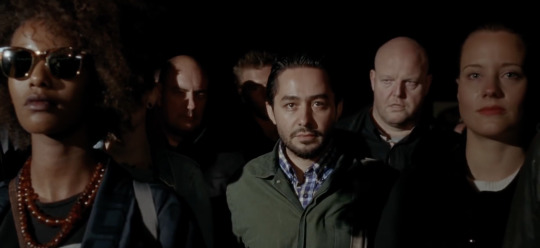
6. The Other Side Of Hope
Why should social realism be the only way of looking at problems like the refugee crisis? Aki Kaurismäki brings his taste for dramatic lighting, deadpan acting and vintage rock’n’roll to this story of a young Syrian braving bureaucracy and street racism in Helsinki. Less funny than most Kaurismäki films, but I found it very moving.
Full review here
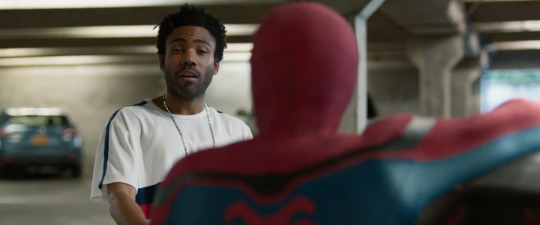
7. Spider-Man: Homecoming
I’ve had enough of super heroes on screen – Marvel’s The Defenders on Netflix was the last straw. I’m voting for a moratorium on them*** and gangsters. So it took a lot to persuade me to see yet another Spider-Man reboot. ‘Don’t think of it as an action movie, think of it as a high-school comedy,’ said my friend Jess, and she was right. It’s nimble and funny and doesn’t take itself too seriously – the best surprise of the year.
Full review here
***I’m totally prepared to believe that Thor: Ragnarok is enjoyable in a bonkers, proggy kind of way, but I’m not risking it. Too many people insisted Captain America: Civil War was good.

8. The Death Of Stalin
After dealing with the (by comparison small) monsters of the Blair era in The Thick Of It, Armando Iannucci turns to the worst – by at least one measure – men in history: Beria, Molotov and Uncle Joe himself.
I don’t think by portraying the farcical nature of the days after Stalin’s death the film is disrespectful to all those who died. I think humour has always been part of how we confront the horror.
The Death Of Stalin has the best ensemble cast of the year – Jeffrey Tambor as Malenkov, Steve Buscemi as Khrushchev, Jason Isaacs giving the performance of his career as Marshal Zhukov, and – best of all – Simon Russell Beale as Beria. And, crucially, it’s definitely a film, not a bit of TV that has snuck on to the big screen.

9. Daphne
Essentially, a classic US indie movie transplanted from Brooklyn to Walworth. The title character is a pretentious and self-centred 30-year-old failing to get her life together – she’s just like women I used to meet at parties in south London 10 or 15 years ago. That could make for a dull film, of course, but the writing, the feel for the place and Emily Beecham as Daphne make it funny and involving.
Full review here
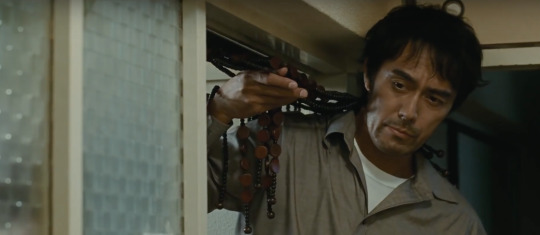
10. After The Storm
Once promising writer with a gambling problem becomes low-rent PI and uses his new skills to keep tabs on his ex. If you think you can imagine how this film goes from that description, you’re probably miles from Hirokazu Kore-eda’s typically patient, generous-spirited and occasionally funny family drama.
Full review here

11. A Ghost Story
Or that one with the white-sheet-with-eye-holes phantom. A Ghost Story is definitely a film you either buy into or you don’t, an austere tale about grief and loss. I did, and found it sad and moving and pleasingly different.
Full review here

12. Neruda
It’s a playful movie about a playful title character – the Chilean poet and dilettante politician during his dramatic time on the run from the authorities – but Neruda has a melancholy underlying mood that rises to the surface as the film goes on. It’s a smart, complex and entertaining film.
Full review here
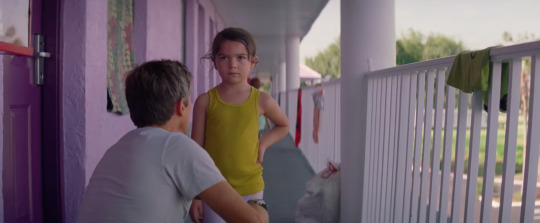
13. The Florida Project
A group of small kids living in a low-rent long-stay motel have adventures and misbehave a bit. And that’s mostly it, with a few dips into the struggles of the mother of one of the kids, plus a sense of the endless patience and generosity of spirit of the motel manager (Willem Dafoe, the sole big name in the cast). What’s impressive is the way Sean Baker maintains a tone that manages to dodge both ‘look at what grindingly terrible lives poor folk lead’ and being a whimsical adorable-kids-running-wild picture. It does drag a little about three quarters of the way in, but the ending pulls it back.

14. La La Land
First it was an instant masterpiece that was going to change the game, then it was a deflating bubble as the haters managed to shout louder than the lovers. So which take on this nostalgia-soaked showbiz musical do I agree with? Well, there are problems with the film – mostly to do with director Damien Chazelle’s continuing attempts to foist his rotten ideology of music on the rest of us via his movies – but I think the people who were swooning were closer to the truth than the raspberry blowers.
Full review here
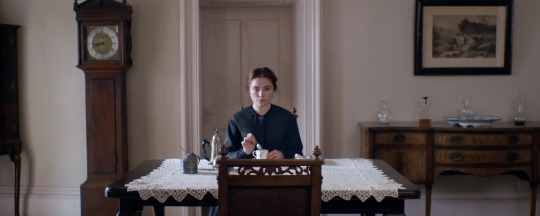
15. Lady Macbeth
Bracingly bleak and at times hard to watch, this is very much in the anti-heritage industry counter-tradition of British period dramas. It’s about the rebellion of a young woman against a grim arranged marriage in Victorian Yorkshire, a struggle that makes strange and grim turns. Unpleasant, but an impressive and memorable piece of filmmaking.
Full review here

16. Blade Of The Immortal
‘Blood-drenched’ would be an understatement when it comes to this gleefully violent supernatural samurai tale in which an almost unkillable ronin is hired by a young girl to revenge her father’s death. If it doesn’t match up to veteran director Takashi Miike’s kinetic 2010 masterpiece 13 Assassins, Blade Of The Immortal is still full of staggering set pieces. Not for the squeamish.
Full review here
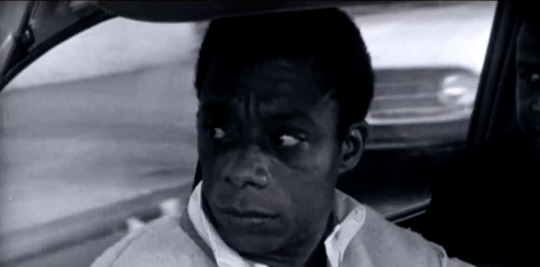
17. I Am Not Your Negro
In a variant on the title of this blog, I’d describe this documentary as kind of unsatisfactory yet powerful. It’s got a curious premise: it’s an ‘adaptation’ of a book that was only vaguely started: James Baldwin’s look at the meaning of the lives and deaths of Medgar Evers, Malcolm X and Martin Luther King.
The result is a slightly rambling wander through what Baldwin wrote and said about black lives in America. The clips of Baldwin on TV and at the Oxford Union are electrifying. The chunks of his writing are beautifully read by Samuel L Jackson in a warm, wise deep oak-aged voice than sounds precisely nothing like either Samuel L Jackson or James Baldwin.
Dropped in around the place are news stills from the last couple of years by way of saying, ‘Yes, Obama made it to the presidency, but otherwise things are still fucked.’ That’s a bit clumsy and crude. What makes the film is Baldwin himself – a great writer (I’m still annoyed that someone nicked my copy of The Fire Next Time in 1991) but also a figure who confounds our condescension of past times: here was a black gay man who was an international public intellectual in the 1960s.
Best old films I saw on the big screen

Scarface
Not every rapper’s favourite movie – this is the terrific 1932 original, a ripped-from-the-headlines account of the rise of a ruthless Chicago gangster that’s as electrifyingly urgent as current organised-crime dramas are weary.
Full review here
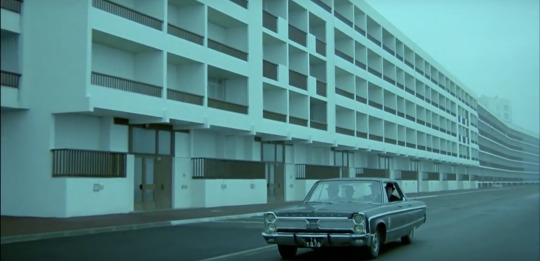
Un Flic
Jean-Pierre Melville, whose career stretched from the 1940s to ’70s, made some of my favourite films ever – Bob Le Flambeur, Le Samurai, Army Of The Shadows – and the BFI showed all of them in a splendid full retrospective this autumn. Of the ones I’d never seen before, my favourite was Un Flic, his last film, a bleak, minimalist film in which a laconic, sadistic cop (Alain Delon) slowly gets on the trail of a heist crew. Moody, stylised and very cool.
Full review here
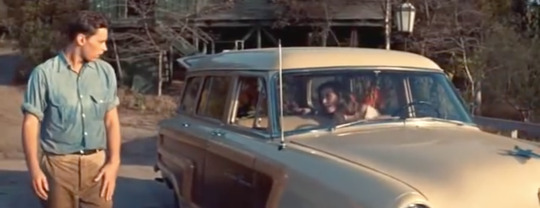
The Cobweb
Over the top, and unashamedly so, Vincente Minnelli’s undervalued mid-’50s melodrama is set in a psychiatric clinic, has a great cast and a plot in which the choice of a set of curtains causes all manner of scheming, bitching and betrayal.
Full review here

La Vérité
An uncharacteristically meaty role for Brigitte Bardot is at the centre of this courtroom drama from Henri-Georges Clouzot. BB plays a beatnik girl on trial for murder, but what made her do it and can a patriarchal justice system treat her fairly? I suspect this felt dated when it appeared in nouvelle vague-era Paris, but it seems pretty relevant now.
Full review here

Salesman
Extraordinary documentary about a group of travelling salesman doing their damnedest to flog absurdly overpriced Bibles to low income Catholics in a late 1960s US where the Age of Aquarius most definitely isn’t in effect.
Full review here
And DYB’s films of:
2016
2015
2014
2013
2012
2011
6 notes
·
View notes
Text
Elizabeth Warren, Cherokees and 'Pocahontas': Why it matters
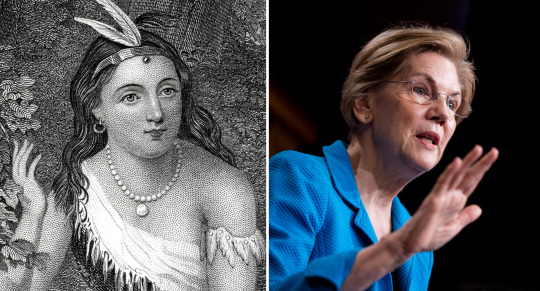
Pocahontas, 1595-1617, and Sen. Elizabeth Warren, D-Mass. (Photos: Getty Images, Bill Clark/CQ Roll Call)

By now, most Americans have heard that Elizabeth Warren, the Massachusetts senator, scourge of Wall St. and liberal hero, falsely claimed to have French ancestry, leading President Trump to mock her as “Joan of Arc.”
Wait, that’s not right.
It was Native American ancestry, specifically Cherokee, that Warren claimed, and the nickname Trump bestowed on her, in a dozen tweets and numerous speeches, was “Pocahontas.”
In principle, the situations should be equivalent. But they’re not. Being mistaken about a French great-grandmother would barely rise to the level of a presidential tweet, even from Trump. But laying claim to Indian blood is taken very seriously in the United States, which tells us not much about Warren, but a great deal about how Native and non-Native Americans view their shared history, four centuries after their first fateful encounters.
Let’s leave aside Trump’s boorishness in bullying Warren over this obscure peccadillo, his utter lack of decorum and decency in bringing it up at a ceremony honoring Native American veterans, and even the fact that Trump himself claimed Swedish descent on his father’s side, when in fact his grandfather was German. If he wants to call her Pocahontas, she should be able to call him Olaf.
We can stipulate — as Warren herself admits, although without quite retracting the original claim — that there is no evidence to support it. Her ancestry has been researched thoroughly, including by Twila Barnes, a freelance genealogist specializing in the Cherokee tribe. Since Warren’s first Senate run in 2012, Barnes has been debunking her claims in dozens of blog posts under headlines like “Indian or Pretendian?” The usual media fact-checking websites have weighed in, and concluded that Warren’s claim appears based on little, or nothing, more than family legend.
Warren has rejected calls to submit to a DNA test that could, in theory, shed light on her lineage. “I know who I am,” Warren said recently in an interview on NBC’s “Meet the Press.” “That’s the story that my brothers and I all learned from our mom and our dad, from our grandparents, from all of our aunts and uncles. It’s a part of me, and nobody’s going to take that part of me away.”
In fact, DNA is a blunt tool to determine Indian descent, especially going back more than four or five generations, by which time the genetic signature may be undetectable. Moreover, Indian ancestry is meaningful mostly insofar as it ties one to a specific tribe, but DNA tests don’t (yet) distinguish among tribes. The leading commercial DNA services generally treat “Native American” as a unitary category covering the entire Western Hemisphere. Indian tribes set their own criteria for membership, typically requiring a documented paper trail. DNA tests don’t qualify.

Warren never sought membership in the Cherokee tribe. Why would she? Politically, there wouldn’t have been much to gain even if she were a full-blood Cherokee; there are only around 350,000 enrolled Cherokees in the world, and not many of them live in Massachusetts. (Shiva Ayyadurai, the Mumbai-born tech entrepreneur who boasts of having invented email when he was in high school, is running against Warren for the Senate as the “real Indian” in the race.) Trump accused Warren of inventing an Indian background to gain an edge in her career. It’s true that in the 1990s, when she taught at Harvard Law School, the university cited her as a Native American to demonstrate the diversity of its faculty. This is information, or misinformation, that could only have come from Warren herself, who also, beginning in 1986, listed herself as a minority in a directory of law-school professors. But she was a recognized authority in her field when Harvard recruited her, and her heritage “simply played no role in the appointments process,” according to Charles Fried, who was Ronald Reagan’s solicitor general and sat on the law school committee that selected her. “Let me be clear,” Warren said in a campaign ad during her first Senate run. “I never asked for, never got any benefit because of my heritage.”
By contrast, when Trump claimed Swedish ancestry he was perpetuating a lie invented by his father for a very specific purpose. Trump’s biographers claim that Fred Trump, a New York City real estate developer, sought to hide his German background during and after World War II so as not to complicate his business relationships, especially with Jews.
And contrary to what some people seem to believe, tribal citizenship is not a quick way to get rich. A few, mostly small, tribes distribute casino profits to their members in impressive amounts, but on the whole Indians are the poorest ethnic group in the country, according to the Native American Rights Fund. The Cherokee Nation, by far the largest of the three bands comprising the Cherokee tribe, has a territory that covers 14 counties in northeastern Oklahoma. (Warren was born in Oklahoma City, which is outside the territory.) The tribe provides certain housing, health and educational benefits to members within those 14 counties, but Warren would have had to move there to take advantage of them. For the majority of Cherokees who live elsewhere, says Barnes, “the benefit is the acknowledgment of your ancestry, the kinship, the link to your history, your ancestors’ sacrifice.”
Of course, those are the same motivations that drive people to research ancestors from anywhere, including those who never moved more than 20 miles from Ellis Island after getting off the boat. But you don’t often hear about people inventing, or imagining, or repeating false family legends about, say, Russian ancestry, except for those trying to get their hands on the Romanov family’s crown jewels.
It’s different with Indians. The No. 1 question among clients of AncestryDNA is “where is my Native American ancestry,” according to genealogist Crista Cowan, who guesses that if all the Americans who claim to have Indian forebears were right, they would make up half the population. She mentions some of the ways such legends get started, including ancestors who happened to look Indian, or who lived in what was called “Indian territory” before it became the State of Oklahoma. In Cowan’s own family, the myth began with a photograph of a long-ago aunt dressed like an Indian; on investigation, it turned out to have been taken at a novelty booth in a fair. Barnes notes that over the years there have been promises, or actual payments, to compensate Cherokees for the seizure of their lands. This created an obvious incentive to apply to join the tribe. “People see records of those applications, they say, oh, great-grandpa wouldn’t have lied. But maybe he did.”

And the legends persist, because almost every American, whether or not he saw “Dances With Wolves,” wants to feel a kinship with Indians. “One of the top five genealogical myths is ‘My great-great-grandmother was a Cherokee princess,’” Barnes says. “There is no such thing.” Being able to claim Indian blood is a way of being rooted in the very soil of America, the stuff that lies beneath the grass of Trump’s golf courses. “Let’s face it, being part Native American is cool,” “Daily Show” host Trevor Noah remarked last fall, apropos of the Pocahontas controversy — “but just part, enough that you’re interesting at a party, not so much that they build a pipeline through your house.” In progressive circles, to claim Indian blood is a form of one-upmanship, a way to show you’ve pre-checked your white privilege. It inoculates you against the charge of being a colonizer. When Europeans are accused of stealing the Indians’ land, you can say, not me.
But, of course, Europeans did steal the Indians’ land, which may help explain why Cherokees like Barnes are so outraged by what otherwise might be excused as a harmless retelling of a family legend. (“Yep, I’m full-blooded Russian. Want to see my Cossack dance?”) It adds the insult of cultural theft to the injury of ethnic cleansing under the Indian Removal Act, which displaced Cherokees and other tribes from their homes in Georgia and Alabama on a journey remembered as the Trail of Tears. Rebecca Nagle, a Cherokee writer and activist, wrote a harsh takedown of Warren recently that was especially notable for where it appeared, on the left-leaning website Think Progress. She wrote, imagining the apology she would like to see from Warren: “I am deeply sorry to the Native American people who have been greatly harmed by my misappropriation of Cherokee identity. … Native Nations are not relics of the past, but active, contemporary, and distinct political groups who are still fighting for recognition and sovereignty within the United States. Those of us who claim false Native identity undermine this fight.”
Warren has been mentioned as a possible presidential candidate in 2020, although she recently announced she was not running. If she did run, Cherokee voters might face a difficult choice between the woman Republicans have been calling “Fauxcahontas,” and Donald Trump, who has adopted as his role model Andrew Jackson — the president who signed the Indian Removal Act.
Read more from Yahoo News:
GOP lawmaker knocks Trump for Putin call but refuses to distance himself from president
What’s behind Trump’s charges about Andrew McCabe’s wife?
On gender, candidates in the Trump era negotiate a changed landscape
Why aren’t Western sanctions stopping Putin?
Photos: Scenes from ‘March for Our Lives’ rallies from around the world
#Jerry Adler#_author:Jerry Adler#signals#_uuid:4f70c338-caeb-3945-8213-da6fc7b6e58a#_revsp:Yahoo! News#_lmsid:a077000000CFoGyAAL#_draft:true
0 notes
Text
Is Caroline Shaw really the future of music?
The composer won a Pulitzer, collaborated with Kanye West, is about to debut new work in New York and is astonishing both the pop and classical music worlds
Decades before Caroline Shaw won the Pulitzer prize for music or collaborated with Kanye West, she was lulled to sleep nightly by her fathers baffling piano playing.
Hes a doctor and he loves music very much. He also has this totally delightful, not deliberate way of putting the metronome on and being completely out of sync with it, and just continuing on, says Shaw, 33, with a peal of laughter as we polish off pints of beer at a Brooklyn bistro. Its like this wonderful polyrhythm. I remember hearing him every night as a kid, sort of wanting to correct it, then drifting off with that sound in my mind.
Today, Dr Shaw could brag about being an avant-garde influence on his daughter. The composer, singer and violinist is a breakout star of New Yorks contemporary classical scene, an inventive collagist whose work brings a new perspective to the human voice. She is a familiar performer at Carnegie Hall and the Metropolitan Museum of Art; her compositions have been snapped up by the Cincinnati Symphony andthe Guggenheim museum.
On Thursday, the Brooklyn Youth Chorus will perform the world premiere of a new Shaw commission, So Quietly, at Jazz at Lincoln Center in New York. The tumultuous, almost entirely a capella piece is Shaws third original work for the group, and a venture of vocal acrobatics for the teenage singers; the song pivots on multiple melodic lines and shifting, ever-resolving harmonies, gliding from terse whispers into bright harmonic catharsis. At times, the teenage ensembles staggered, exaggerated breathing takes on a percussive quality; elsewhere, their staccato chirps ricochet around the room. One refrain cuts through the mlange, increasingly oaky and dynamic: a murmur of Ill just sit here so quietly, which morphs steadily into a roaring pledge to remain ever singing.
With this piece, the composer had empowerment on her mind. Its about someone trying to say something and not being able to, and all the ways women or minorities say these words to try to get around the difficult conversations they really want to have, says Shaw, who grew up in Greenville, North Carolina and now lives in Hells Kitchen, Manhattan. Its also a way to set up the piece where somethings static, building, unsure, and then blossoms into something really joyful and harmonically interesting.
Shaws mother, a Suzuki method violin instructor, taught her the instrument at age two; the precocious Brahms and Mozart enthusiast wrote her first string quartet in elementary school, then went on to study the instrument at Rice University and Yale University. After moving to New York in 2008, while eking out a living as an instrumental accompanist for music classes, she joined the progressive a capella ensemble Roomful of Teeth and began composing for them, delving into vocal nuances in the manner of Alvin Lucier and Laurie Anderson. One particularly intricate work took years: Partita for 8 Voices, a mercurial, deeply nontraditional abstract of tuneful sighs, mutters, whispers, throat singing, spoken word, and even the odd carnal gasp, with four movements titled after Baroque dances (Allemande, Sarabande, Courante and Passacaglia). By the time the piece was completed, Shaw had enrolled in PhD studies in composition at Princeton University; on a lark, she submitted Partitas score to the selection committee of the2013 Pulitzer prize.
Then she won.
It was so unexpected my friend saw it on Twitter and called me, says Shaw. At age 30, she became the youngest musician ever to claim the prize the physical representation of which she describes, a bit bashfully, as a certificate in a small glass thing, currently stuffed behind some paperwork in her office. Im very grateful for the opportunities Ive been given as a result. I also know there are so many other people whove written things just as qualified. It seems like a crapshoot, who gets this.
The Pulitzer jolted Shaws career overnight; she was toasted in the New York Times, the Atlantic, even Vogue Italia. The pop crowd followed quickly, yieldingcollaborations withRichard Reed Parryof Arcade Fireand the National. Then, in 2014, at a Roomful of Teeth performance of Partita for 8 Voices in Los Angeles, Kanye West approached her backstage and requested her phone number but Shaw didnt leap initially at the chance to collaborate.
One of his producers asked me if Id be interested on working on songs for a live show with an orchestra. I got the sense that maybe he wanted to ask me to be a composer and orchestrate something, and that wasnt something that was really interesting to me; theres a lot of people who do that, Shaw recalls. So I didnt do anything for a week or two, then I did a deep dive into [the West album] 808s and Heartbreak. Say You Will is the song that hit me most.
Shaws remix of that track, released in October of last year, proved remarkable; she sang, played violin and arranged it, converting the originally spare, plaintive Autotuned ballad into a chattering, harmonically supple electro-orchestral swoon. It yielded a fruitful partnership; Shaw supported West onstage at the Democratic National Committee fundraiser that same month, and later joined him in the studio as he recorded his enigmatic seventh album, The Life of Pablo. Her spectral vocals appear on two tracks, Father Stretch My Hands Pt2 and Wolves. (The latter track also features Frank Ocean.)
The original version of Say You Will does something with music that I love: the last two minutes of his song, nothing happens. Absolutely nothing, Shaw says gleefully. Thats something I love about Pablo, too: there are parts of that album where nothing happens. There were many people in the studio, and we were all doing cool stuff. But the decision for none of that happen, I think, is super beautiful. She and West are now working intermittently on another project, one kept under wraps.
Shaws growing pop bona fides are only enhancing her classical compositions, says Limor Tomer,General Manager of the Metropolitan Museum of Arts MetLiveArts series. Shaw first performed at the Met in 2003, and has returned several times.
Caroline is an incredibly unique voice. To me, she represents the future of music, says Tomer. Theres no threshold to entry for her work. You dont need to have a PhD in Ligeti to understand her language. It engages the heart.
Dianne Berkun Menaker, founding artistic director of the Brooklyn Youth Chorus, is similarly enthusiastic about Shaws work.
Caroline writes really complex things. She plays with the color of vowels, has really tight canonic figures, parts chasing each other and then shell mix in these glorious, starbust chords, says Menaker. Shes one of the most creative people writing right now. You never get the feeling that shes copying someone else or following some prescribed path.
Shaw next premieres a new commission, Dont Let Me Be Lonely (inspired by Claudia Rankines book), with Roomful of Teethat the venerable Ojai music festival in California. When she returns to Manhattan, she has some 18 or 19 commissions to write, as well as continue work on her doctorate at Princeton. In July, she hopes to carve out the first steps of a new studio album, one that could fold in many new collaborators across pop and classical castes. (She has one fellow subversive at the top of her wish list: Annie Clark aka St Vincent.)
Regardless of which musicians Shaw recruits, though, the pyrotechnics of the human voice will remain front and central in her creations.
When I hear people speaking, it sounds like 100 different instruments coming out of their mouths, Shaw raves. You can use those colors in such a beautiful, beautiful way.
Source: http://allofbeer.com/2017/06/22/is-caroline-shaw-really-the-future-of-music/
from All of Beer https://allofbeer.wordpress.com/2017/06/22/is-caroline-shaw-really-the-future-of-music/
0 notes
Text
Is Caroline Shaw really the future of music?
The composer won a Pulitzer, collaborated with Kanye West, is about to debut new work in New York and is astonishing both the pop and classical music worlds

Decades before Caroline Shaw won the Pulitzer prize for music or collaborated with Kanye West, she was lulled to sleep nightly by her fathers baffling piano playing.
Hes a doctor and he loves music very much. He also has this totally delightful, not deliberate way of putting the metronome on and being completely out of sync with it, and just continuing on, says Shaw, 33, with a peal of laughter as we polish off pints of beer at a Brooklyn bistro. Its like this wonderful polyrhythm. I remember hearing him every night as a kid, sort of wanting to correct it, then drifting off with that sound in my mind.
Today, Dr Shaw could brag about being an avant-garde influence on his daughter. The composer, singer and violinist is a breakout star of New Yorks contemporary classical scene, an inventive collagist whose work brings a new perspective to the human voice. She is a familiar performer at Carnegie Hall and the Metropolitan Museum of Art; her compositions have been snapped up by the Cincinnati Symphony andthe Guggenheim museum.
On Thursday, the Brooklyn Youth Chorus will perform the world premiere of a new Shaw commission, So Quietly, at Jazz at Lincoln Center in New York. The tumultuous, almost entirely a capella piece is Shaws third original work for the group, and a venture of vocal acrobatics for the teenage singers; the song pivots on multiple melodic lines and shifting, ever-resolving harmonies, gliding from terse whispers into bright harmonic catharsis. At times, the teenage ensembles staggered, exaggerated breathing takes on a percussive quality; elsewhere, their staccato chirps ricochet around the room. One refrain cuts through the mlange, increasingly oaky and dynamic: a murmur of Ill just sit here so quietly, which morphs steadily into a roaring pledge to remain ever singing.
With this piece, the composer had empowerment on her mind. Its about someone trying to say something and not being able to, and all the ways women or minorities say these words to try to get around the difficult conversations they really want to have, says Shaw, who grew up in Greenville, North Carolina and now lives in Hells Kitchen, Manhattan. Its also a way to set up the piece where somethings static, building, unsure, and then blossoms into something really joyful and harmonically interesting.
Shaws mother, a Suzuki method violin instructor, taught her the instrument at age two; the precocious Brahms and Mozart enthusiast wrote her first string quartet in elementary school, then went on to study the instrument at Rice University and Yale University. After moving to New York in 2008, while eking out a living as an instrumental accompanist for music classes, she joined the progressive a capella ensemble Roomful of Teeth and began composing for them, delving into vocal nuances in the manner of Alvin Lucier and Laurie Anderson. One particularly intricate work took years: Partita for 8 Voices, a mercurial, deeply nontraditional abstract of tuneful sighs, mutters, whispers, throat singing, spoken word, and even the odd carnal gasp, with four movements titled after Baroque dances (Allemande, Sarabande, Courante and Passacaglia). By the time the piece was completed, Shaw had enrolled in PhD studies in composition at Princeton University; on a lark, she submitted Partitas score to the selection committee of the2013 Pulitzer prize.
Then she won.
It was so unexpected my friend saw it on Twitter and called me, says Shaw. At age 30, she became the youngest musician ever to claim the prize the physical representation of which she describes, a bit bashfully, as a certificate in a small glass thing, currently stuffed behind some paperwork in her office. Im very grateful for the opportunities Ive been given as a result. I also know there are so many other people whove written things just as qualified. It seems like a crapshoot, who gets this.
The Pulitzer jolted Shaws career overnight; she was toasted in the New York Times, the Atlantic, even Vogue Italia. The pop crowd followed quickly, yieldingcollaborations withRichard Reed Parryof Arcade Fireand the National. Then, in 2014, at a Roomful of Teeth performance of Partita for 8 Voices in Los Angeles, Kanye West approached her backstage and requested her phone number but Shaw didnt leap initially at the chance to collaborate.
One of his producers asked me if Id be interested on working on songs for a live show with an orchestra. I got the sense that maybe he wanted to ask me to be a composer and orchestrate something, and that wasnt something that was really interesting to me; theres a lot of people who do that, Shaw recalls. So I didnt do anything for a week or two, then I did a deep dive into [the West album] 808s and Heartbreak. Say You Will is the song that hit me most.
Shaws remix of that track, released in October of last year, proved remarkable; she sang, played violin and arranged it, converting the originally spare, plaintive Autotuned ballad into a chattering, harmonically supple electro-orchestral swoon. It yielded a fruitful partnership; Shaw supported West onstage at the Democratic National Committee fundraiser that same month, and later joined him in the studio as he recorded his enigmatic seventh album, The Life of Pablo. Her spectral vocals appear on two tracks, Father Stretch My Hands Pt2 and Wolves. (The latter track also features Frank Ocean.)
The original version of Say You Will does something with music that I love: the last two minutes of his song, nothing happens. Absolutely nothing, Shaw says gleefully. Thats something I love about Pablo, too: there are parts of that album where nothing happens. There were many people in the studio, and we were all doing cool stuff. But the decision for none of that happen, I think, is super beautiful. She and West are now working intermittently on another project, one kept under wraps.
Shaws growing pop bona fides are only enhancing her classical compositions, says Limor Tomer,General Manager of the Metropolitan Museum of Arts MetLiveArts series. Shaw first performed at the Met in 2003, and has returned several times.
Caroline is an incredibly unique voice. To me, she represents the future of music, says Tomer. Theres no threshold to entry for her work. You dont need to have a PhD in Ligeti to understand her language. It engages the heart.
Dianne Berkun Menaker, founding artistic director of the Brooklyn Youth Chorus, is similarly enthusiastic about Shaws work.
Caroline writes really complex things. She plays with the color of vowels, has really tight canonic figures, parts chasing each other and then shell mix in these glorious, starbust chords, says Menaker. Shes one of the most creative people writing right now. You never get the feeling that shes copying someone else or following some prescribed path.
Shaw next premieres a new commission, Dont Let Me Be Lonely (inspired by Claudia Rankines book), with Roomful of Teethat the venerable Ojai music festival in California. When she returns to Manhattan, she has some 18 or 19 commissions to write, as well as continue work on her doctorate at Princeton. In July, she hopes to carve out the first steps of a new studio album, one that could fold in many new collaborators across pop and classical castes. (She has one fellow subversive at the top of her wish list: Annie Clark aka St Vincent.)
Regardless of which musicians Shaw recruits, though, the pyrotechnics of the human voice will remain front and central in her creations.
When I hear people speaking, it sounds like 100 different instruments coming out of their mouths, Shaw raves. You can use those colors in such a beautiful, beautiful way.
from All Of Beer http://allofbeer.com/2017/06/22/is-caroline-shaw-really-the-future-of-music/ from All of Beer https://allofbeercom.tumblr.com/post/162116477922
0 notes
Text
Is Caroline Shaw really the future of music?
The composer won a Pulitzer, collaborated with Kanye West, is about to debut new work in New York and is astonishing both the pop and classical music worlds

Decades before Caroline Shaw won the Pulitzer prize for music or collaborated with Kanye West, she was lulled to sleep nightly by her fathers baffling piano playing.
Hes a doctor and he loves music very much. He also has this totally delightful, not deliberate way of putting the metronome on and being completely out of sync with it, and just continuing on, says Shaw, 33, with a peal of laughter as we polish off pints of beer at a Brooklyn bistro. Its like this wonderful polyrhythm. I remember hearing him every night as a kid, sort of wanting to correct it, then drifting off with that sound in my mind.
Today, Dr Shaw could brag about being an avant-garde influence on his daughter. The composer, singer and violinist is a breakout star of New Yorks contemporary classical scene, an inventive collagist whose work brings a new perspective to the human voice. She is a familiar performer at Carnegie Hall and the Metropolitan Museum of Art; her compositions have been snapped up by the Cincinnati Symphony andthe Guggenheim museum.
On Thursday, the Brooklyn Youth Chorus will perform the world premiere of a new Shaw commission, So Quietly, at Jazz at Lincoln Center in New York. The tumultuous, almost entirely a capella piece is Shaws third original work for the group, and a venture of vocal acrobatics for the teenage singers; the song pivots on multiple melodic lines and shifting, ever-resolving harmonies, gliding from terse whispers into bright harmonic catharsis. At times, the teenage ensembles staggered, exaggerated breathing takes on a percussive quality; elsewhere, their staccato chirps ricochet around the room. One refrain cuts through the mlange, increasingly oaky and dynamic: a murmur of Ill just sit here so quietly, which morphs steadily into a roaring pledge to remain ever singing.
With this piece, the composer had empowerment on her mind. Its about someone trying to say something and not being able to, and all the ways women or minorities say these words to try to get around the difficult conversations they really want to have, says Shaw, who grew up in Greenville, North Carolina and now lives in Hells Kitchen, Manhattan. Its also a way to set up the piece where somethings static, building, unsure, and then blossoms into something really joyful and harmonically interesting.
Shaws mother, a Suzuki method violin instructor, taught her the instrument at age two; the precocious Brahms and Mozart enthusiast wrote her first string quartet in elementary school, then went on to study the instrument at Rice University and Yale University. After moving to New York in 2008, while eking out a living as an instrumental accompanist for music classes, she joined the progressive a capella ensemble Roomful of Teeth and began composing for them, delving into vocal nuances in the manner of Alvin Lucier and Laurie Anderson. One particularly intricate work took years: Partita for 8 Voices, a mercurial, deeply nontraditional abstract of tuneful sighs, mutters, whispers, throat singing, spoken word, and even the odd carnal gasp, with four movements titled after Baroque dances (Allemande, Sarabande, Courante and Passacaglia). By the time the piece was completed, Shaw had enrolled in PhD studies in composition at Princeton University; on a lark, she submitted Partitas score to the selection committee of the2013 Pulitzer prize.
Then she won.
It was so unexpected my friend saw it on Twitter and called me, says Shaw. At age 30, she became the youngest musician ever to claim the prize the physical representation of which she describes, a bit bashfully, as a certificate in a small glass thing, currently stuffed behind some paperwork in her office. Im very grateful for the opportunities Ive been given as a result. I also know there are so many other people whove written things just as qualified. It seems like a crapshoot, who gets this.
The Pulitzer jolted Shaws career overnight; she was toasted in the New York Times, the Atlantic, even Vogue Italia. The pop crowd followed quickly, yieldingcollaborations withRichard Reed Parryof Arcade Fireand the National. Then, in 2014, at a Roomful of Teeth performance of Partita for 8 Voices in Los Angeles, Kanye West approached her backstage and requested her phone number but Shaw didnt leap initially at the chance to collaborate.
One of his producers asked me if Id be interested on working on songs for a live show with an orchestra. I got the sense that maybe he wanted to ask me to be a composer and orchestrate something, and that wasnt something that was really interesting to me; theres a lot of people who do that, Shaw recalls. So I didnt do anything for a week or two, then I did a deep dive into [the West album] 808s and Heartbreak. Say You Will is the song that hit me most.
Shaws remix of that track, released in October of last year, proved remarkable; she sang, played violin and arranged it, converting the originally spare, plaintive Autotuned ballad into a chattering, harmonically supple electro-orchestral swoon. It yielded a fruitful partnership; Shaw supported West onstage at the Democratic National Committee fundraiser that same month, and later joined him in the studio as he recorded his enigmatic seventh album, The Life of Pablo. Her spectral vocals appear on two tracks, Father Stretch My Hands Pt2 and Wolves. (The latter track also features Frank Ocean.)
The original version of Say You Will does something with music that I love: the last two minutes of his song, nothing happens. Absolutely nothing, Shaw says gleefully. Thats something I love about Pablo, too: there are parts of that album where nothing happens. There were many people in the studio, and we were all doing cool stuff. But the decision for none of that happen, I think, is super beautiful. She and West are now working intermittently on another project, one kept under wraps.
Shaws growing pop bona fides are only enhancing her classical compositions, says Limor Tomer,General Manager of the Metropolitan Museum of Arts MetLiveArts series. Shaw first performed at the Met in 2003, and has returned several times.
Caroline is an incredibly unique voice. To me, she represents the future of music, says Tomer. Theres no threshold to entry for her work. You dont need to have a PhD in Ligeti to understand her language. It engages the heart.
Dianne Berkun Menaker, founding artistic director of the Brooklyn Youth Chorus, is similarly enthusiastic about Shaws work.
Caroline writes really complex things. She plays with the color of vowels, has really tight canonic figures, parts chasing each other and then shell mix in these glorious, starbust chords, says Menaker. Shes one of the most creative people writing right now. You never get the feeling that shes copying someone else or following some prescribed path.
Shaw next premieres a new commission, Dont Let Me Be Lonely (inspired by Claudia Rankines book), with Roomful of Teethat the venerable Ojai music festival in California. When she returns to Manhattan, she has some 18 or 19 commissions to write, as well as continue work on her doctorate at Princeton. In July, she hopes to carve out the first steps of a new studio album, one that could fold in many new collaborators across pop and classical castes. (She has one fellow subversive at the top of her wish list: Annie Clark aka St Vincent.)
Regardless of which musicians Shaw recruits, though, the pyrotechnics of the human voice will remain front and central in her creations.
When I hear people speaking, it sounds like 100 different instruments coming out of their mouths, Shaw raves. You can use those colors in such a beautiful, beautiful way.
from All Of Beer http://allofbeer.com/2017/06/22/is-caroline-shaw-really-the-future-of-music/
0 notes